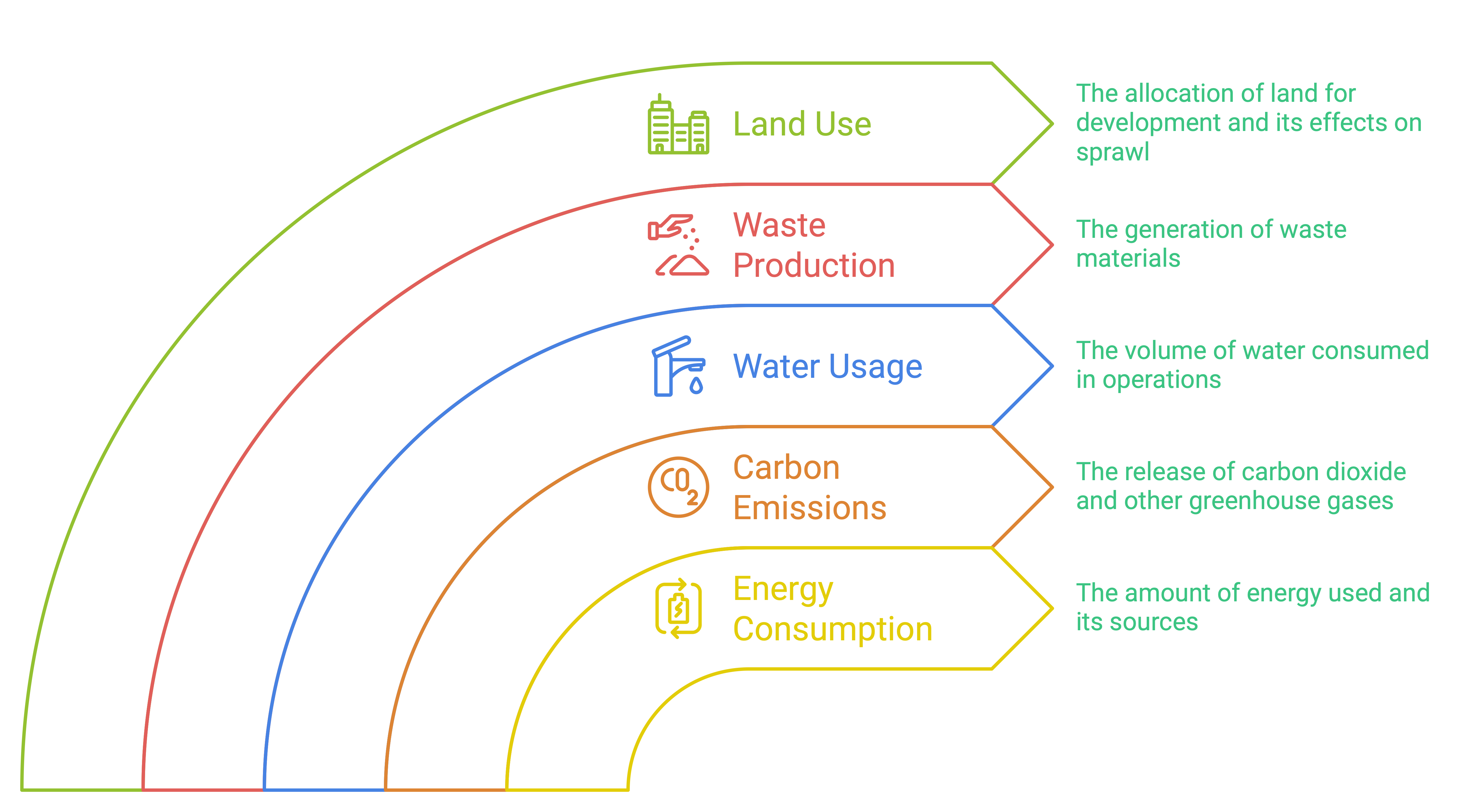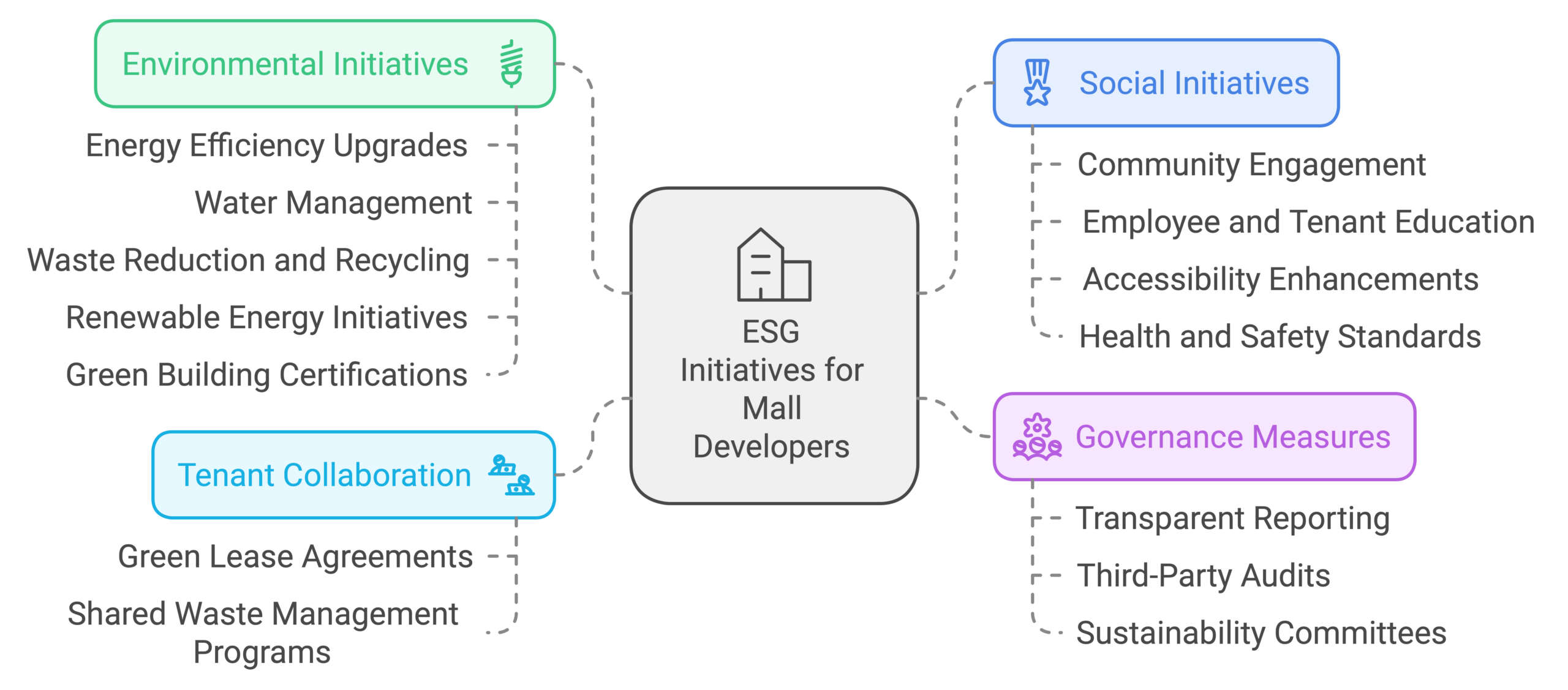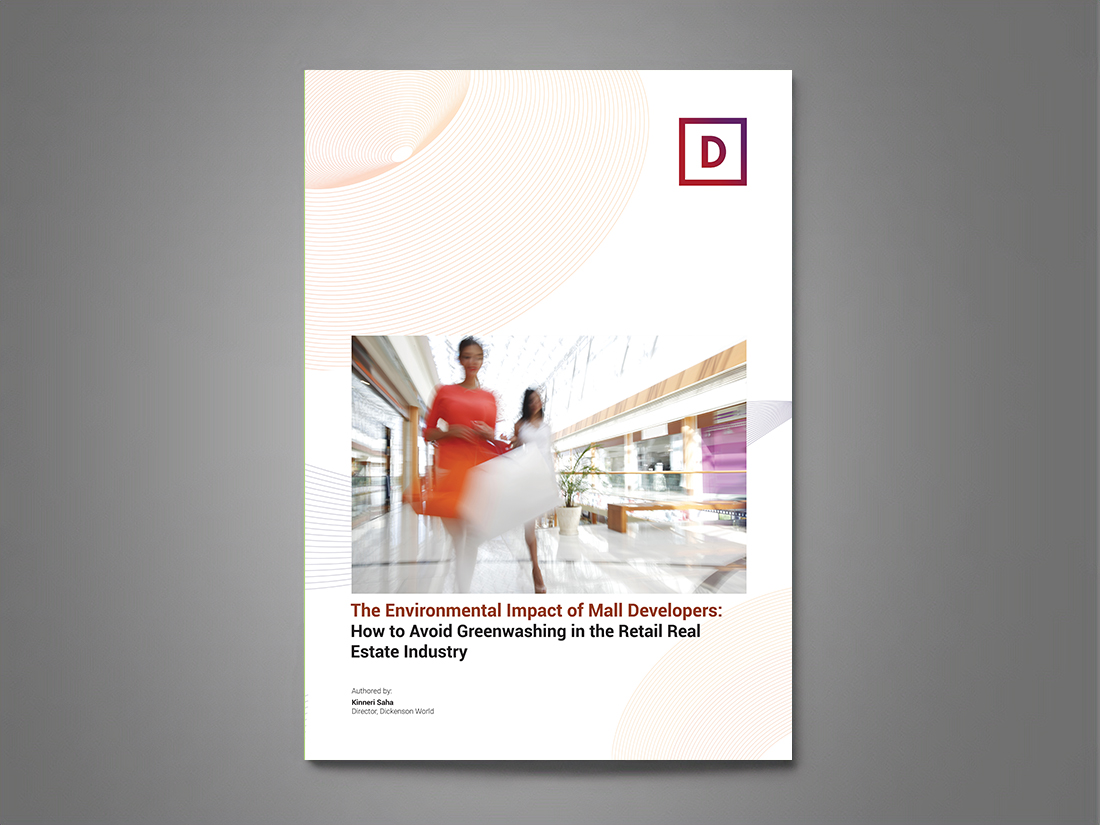The Environmental Impact of Mall Developers:
How to Avoid Greenwashing in the Retail Real Estate Industry
Below, we delve into the environmental footprint of mall development, why this industry is particularly vulnerable to accusations of greenwashing, and the regulatory landscape aiming to curb these deceptive practices. We also outline actionable strategies for mall developers to avoid greenwashing and build a credible, sustainable reputation.
So What? The Risks and Consequences of Greenwashing for Mall Developers
The risks of greenwashing are real and growing. A recent study revealed that 55% of CFOs are concerned about facing backlash over sustainability claims, highlighting the reputational and financial risks that can arise from greenwashing. For mall developers, accusations of greenwashing can lead to regulatory scrutiny, legal consequences, and the erosion of consumer trust-each of which can negatively impact the business. As regulatory bodies like the EU, the UK CMA, and the US SEC increase their oversight, mall developers must be especially diligent to ensure their sustainability claims are backed by evidence. In an industry where environmental impact is unavoidable, avoiding greenwashing requires more than marketing. Mall developers need a genuine commitment to sustainable practices, transparent reporting, and a willingness to engage with tenants and other stakeholders on meaningful environmental improvements.
The Environmental Footprint of Mall Development
Given this environmental footprint, mall developers are increasingly adopting sustainability initiatives to reduce their impact. However, the challenge lies in ensuring these initiatives are meaningful, measurable, and accurately reported, rather than using them as marketing tactics to appear “green.” The environmental impact of shopping centres is significant, and tackling it requires mall developers to address a range of factors:

-
Energy Consumption and Carbon Emissions:
Shopping centres are some of the highest energy consumers in the commercial real estate sector, with heating, cooling, and lighting contributing to high carbon emissions. The International Council of Shopping Centres reports that shopping malls can consume between 250-650 kWh of electricity per square meter annually, resulting in substantial greenhouse gas emissions.
-
Water Usage and Waste Production:
Mall operations, particularly those with food courts and entertainment options, require large quantities of water and produce substantial waste. This waste can include everything from food leftovers and plastic packaging to disposable retail materials, which, if not properly managed, contribute to pollution and landfill overflow.
-
Land Use and Urban Sprawl:
Shopping malls require extensive land space, often in suburban areas. This can lead to habitat destruction and urban sprawl, where natural landscapes are replaced by asphalt, buildings, and parking lots. Such developments disrupt local ecosystems and contribute to biodiversity loss.
Why Mall Developers are Vulnerable to Greenwashing Accusations
Greenwashing occurs when companies overstate or misrepresent their environmental efforts. The retail real estate industry, particularly mall developers, face unique pressures and challenges that make them vulnerable to accusations of greenwashing:

-
Consumer and Investor Expectations:
Modern consumers and investors are increasingly environmentally conscious and prefer to support sustainable brands and spaces. Mall developers face pressure to meet these expectations, often leading them to make broad claims about “sustainability” or “eco-friendliness” without providing transparent data.
-
Complex Supply Chains and Tenant Accountability:
Mall developers can control certain aspects of their sustainability practices, such as energy-efficient building designs, but much of the environmental impact comes from tenants. If tenants are not committed to sustainable practices, it undermines the overall green efforts of the mall, making it difficult to report accurate and impactful ESG metrics.
-
Inconsistent and Selective Reporting:
Without standardized reporting frameworks, some developers may selectively report metrics that show favourable outcomes, downplaying areas where their impact is negative or where they have yet to make improvements. This selective reporting can lead to accusations of greenwashing, particularly as regulatory scrutiny over misleading claims intensifies.
Greenwashing Regulations and the Implications for Mall Developers
With the rise in greenwashing cases across industries, governments and regulatory bodies worldwide are acting to curb misleading environmental claims. Notable regulations are being developed and enforced to ensure companies present accurate and verifiable information on their ESG initiatives. Failure to comply with these regulations can result in penalties, reputational damage, and the loss of consumer trust. For mall developers, navigating this regulatory landscape means adopting transparent, evidence-based ESG practices that are both meaningful and measurable. Here are some of the key regulatory developments that mall developers need to understand:
-
European Union’s Green Claims Directive:
The European Union has proposed the Green Claims Directive to crack down on vague or misleading environmental claims. This regulation mandates that companies substantiate their green claims with scientific evidence, ensuring that any environmental assertions are transparent and verifiable. For mall developers, this means that terms like “carbon-neutral” or “sustainable” must be supported with clear data, and they must be ready to disclose their methods of achieving such claims.
-
UK’s Greenwashing Regulations:
The UK has introduced its own regulations aimed at reducing greenwashing across industries, with the Competition and Markets Authority (CMA) enforcing guidelines that hold companies accountable for misleading claims. In retail real estate, this may impact mall developers who promote their properties as “green” without backing up these statements. The CMA has already investigated several cases in the real estate sector, highlighting the scrutiny that mall developers can face if they make unverified claims.
-
US SEC’s Focus on Greenwashing in ESG Funds:
In the United States, the Securities and Exchange Commission (SEC) is focused on increasing transparency in ESG claims, particularly for funds that invest in companies claiming sustainability. Mall developers who rely on investment from ESG funds must ensure their practices align with their green claims, as discrepancies could result in regulatory scrutiny and potential legal action.
-
International Standards for ESG Disclosure:
The International Financial Reporting Standards (IFRS) Foundation and the International Sustainability Standards Board (ISSB) are developing globally recognized standards for ESG reporting. These standards aim to unify the way companies report their environmental impact, offering consistent metrics that investors and consumers can rely on. As these standards are adopted, mall developers will need to adhere to them to remain competitive and credible in the global market.
Actionable Strategies for Mall Developers to Avoid Greenwashing
To establish credible ESG practices and avoid greenwashing, mall developers should consider the following strategies:
-
Embrace Transparent Reporting and Established Frameworks:
By adopting recognized reporting frameworks such as the Global Reporting Initiative (GRI) or the Task Force on Climate-related Financial Disclosures (TCFD), mall developers can ensure comprehensive and standardized disclosures. This also includes publishing both positive and negative environmental data to build trust with stakeholders.
-
Collaborate with Tenants on Sustainability Initiatives:
Given that tenants contribute significantly to a mall’s environmental impact, mall developers should actively engage tenants in sustainability efforts. Providing incentives for energy efficiency, waste reduction, and sustainable retail practices can drive meaningful change across the entire property.
Invest in Verifiable Green Infrastructure:
Developers should focus on tangible, verifiable upgrades that reduce their environmental impact, such as renewable energy installations, water saving systems, and waste reduction technologies. For example, installing solar panels, upgrading to energy-efficient HVAC systems, and implementing comprehensive waste management programs can demonstrate a clear commitment to sustainability.
-
Use Clear, Measurable Language in Marketing Claims:
Instead of vague terms like “eco-friendly” or “green,” mall developers should provide concrete details about their environmental achievements. For example, instead of saying “sustainable shopping,” a developer might state, “We have reduced water consumption by 30% over the past year through water-efficient installations and recycling programs.”
-
Pursue Third-Party Certifications and Independent Audits:
Achieving reputable certifications like LEED, BREEAM, or ISO 14001 can validate a mall developer’s environmental claims. Annual third party audits also add an extra layer of credibility, verifying that the sustainability initiatives are not only implemented but are delivering measurable results.

In Closing
Mall developers stand at a crossroads where action must replace appearances. Genuine commitment to sustainability is no longer optional—it is essential for earning the trust of consumers, investors, and regulators alike. By prioritizing transparency, measurable progress, and stakeholder collaboration, the industry has the chance to lead by example in the fight against greenwashing. The question is no longer whether to act, but how decisively mall developers can transform their promises into tangible, impactful results.
About the Author
Kinneri is an Economics Major graduate, with minors in Liberal Arts and Business Study from NY University (NYU). She joined Dickenson full-time in May 2016 as an Associate Consultant within the f irm’s Investor Relations practice, and as an Editor for the Corporate Reporting practice. Since then, she has successfully developed strong skills in developing investor presentations, in Bloomberg/ Factset data mining, News Release preparation, IR Analytics, Investor Targeting reports and curating the content’s team work for the Corporate Reporting and Financial PR practices of Dickenson. In February 2017, she took up the responsibility of seeding the company’s UK presence and based herself permanently in London. As a Director of the company’s UK arm, she is currently responsible for developing the firm’s business in the North Atlantic markets.
Contact Us: To learn more or schedule a consultation, please reach out to us at www.dickensonworld.com
enquiry@dickensonworld.com.

The Environmental Impact of Mall Developers
To download and save this article.
Authored by:
Kinneri Saha
Director, Dickenson World
Visit www.dickensonworld.com to learn more about our services and how we can help streamline your corporate reporting process.


Leave A Comment